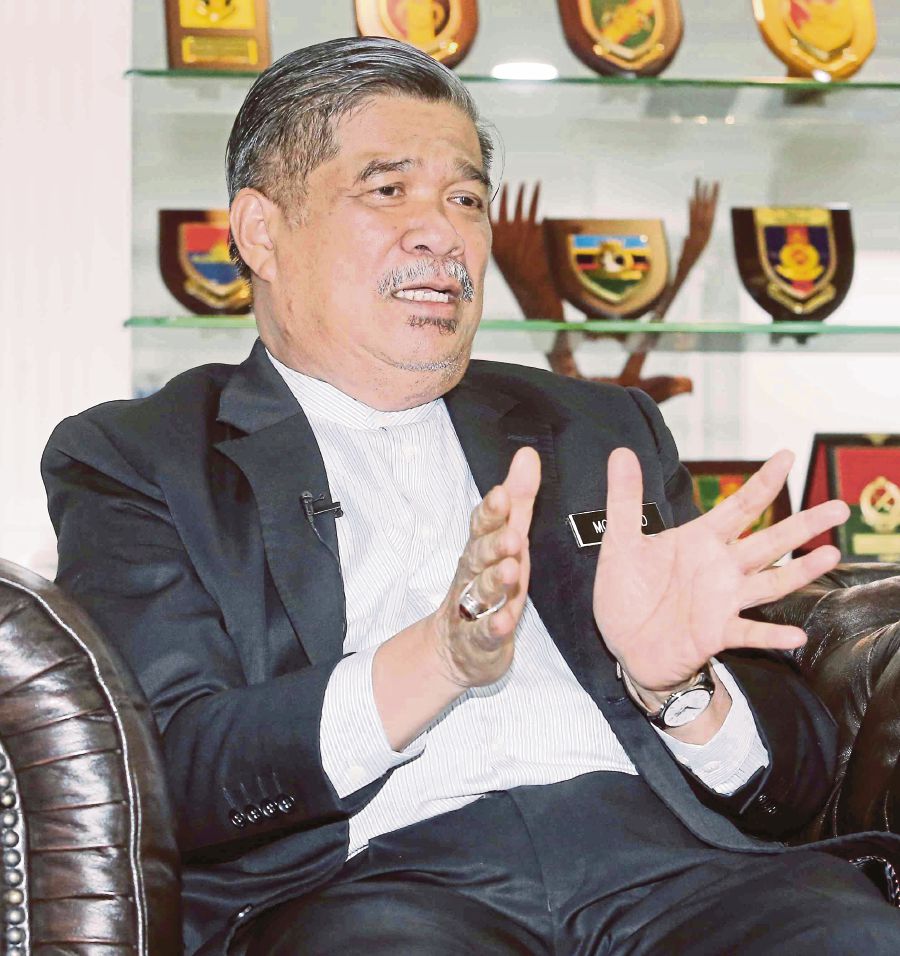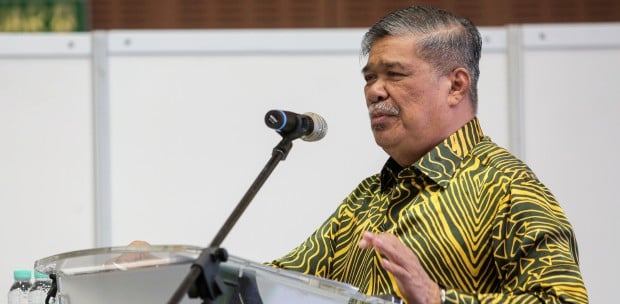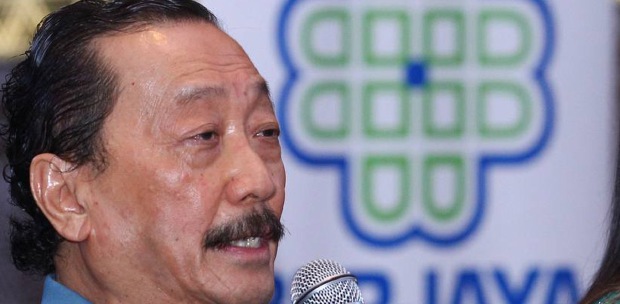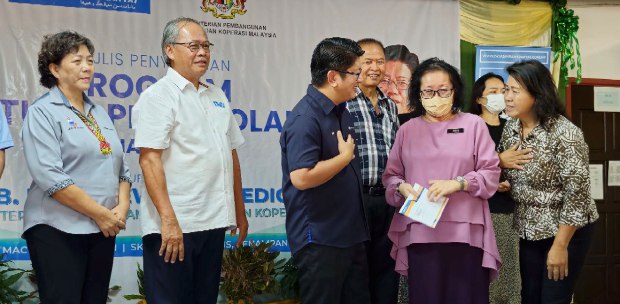KUALA LUMPUR:An HOST of irregularities, malfeasance, corruption and incompetence has plagued the Defence Ministry for decades.
And its minister, Mohamad Sabu,is paying attention to these areas,especially in fighting graft involving acquisitions, in perhaps the country’s largest enforcement agency.
Many a lucrative defence acquisition has reportedly been procured with inflated prices by unscrupulous officials, who raked in billions at the expense of the taxpayers, but were unable to deliver on their commitments.
If left unchecked, it can decay morale among soldiers.
More importantly, it will threaten national security and the country’s sovereignty, let alone bleed national coffers with pillaging and plundering, thus, causing economic turmoil.
Not one to play the blame game after ‘inheriting’ the setbacks left by the previous regime, Mohamad is ready to crack the whip come New Year.
He has cautioned his officers to adhere to the Anti-Bribery Management System, which had attained the International Standards Organisation’s ISO 37001: 2016 certification.
Mohamad, who has been entrusted with the job by the Paka- tan Harapan government, is bent on not only cleaning up his ministry but also making the Armed Forces a more credible organisation.
FOUR AMBITIOUS INITIATIVES
Among his ambitious plans are four core initiatives for the coming year.
‘Apart from building a credible force, we want to ensure our Armed Forces is capable of safeguarding national security and counter external threats to our sovereignty.
‘We want integrity in the ministry’s financial management and procurement of assets.
‘Hence, there has been a review of the standard operating procedure on defence procurement, to boost transparency, efficiency and effectiveness that are based on regulations.
‘We are paying greater attention in fighting graft.
‘Additionally, we want to sustain the wellbeing of the Armed Forces personnel, their families and veterans so that they can serve unhindered,’ said Mohamad, popularly known as Mat Sabu.
As the year comes to a close, Mohamad, in his ministry’s 2019 Report Card, spoke on the accomplishments and initiatives implemented.
Topping the report is the historic Defence White Paper tabled in Parliament on Dec 2, and which was subsequently passed.
‘It outlines the nation’s strategic directions and plans.
‘The idea is to establish a credible Armed Forces by boosting its readiness for full-mission capabilities and to face any eventuality.
‘At the same time, we want to strengthen maritime security through integrated operations with foreign agencies.’
The ministry had undertaken initiatives to boost security at the country’s borders via combined and joint operations involving the tri-services.
The operations included ‘Op Keris Parang’, ‘Op Jaga Kawan’, ‘Op Belasah’ and ‘Op Gateway’, while the Royal Malaysian Air Force conducted ‘Op Eye in the Sky’.
The Royal Malaysian Navy implemented the ‘Op Trilateral Maritime Patrol’.
All three services jointly carried out the ‘Op Pasir’, ‘Op Pesisir Pantai’ and ‘Op Pahlawan’.
He said the ministry needed a stable and sustainable financial allocation to have a credible force.
‘For this purpose, under the 2020 Budget, the government has increased the defence allocation to RM15.6 billion for next year from the RM13.9 billion this year, an increase of 11.92 per cent.
‘Of the total allocation, RM3.1 billion is for development and RM12.5 billion for operational expenses.’
Other measures planned are for the Armed Forces to play a greater role in peacekeeping missions, particularly the United Nations Interim Force in Lebanon,and to extend Malaysia’s field hospital operations in Cox’s Bazar, Bangladesh, until 2021.
As for the Langkawi International Maritime and Aerospace (Lima) 2019 exhibition, it had raked in RM4 billion worth of contracts and agreements.
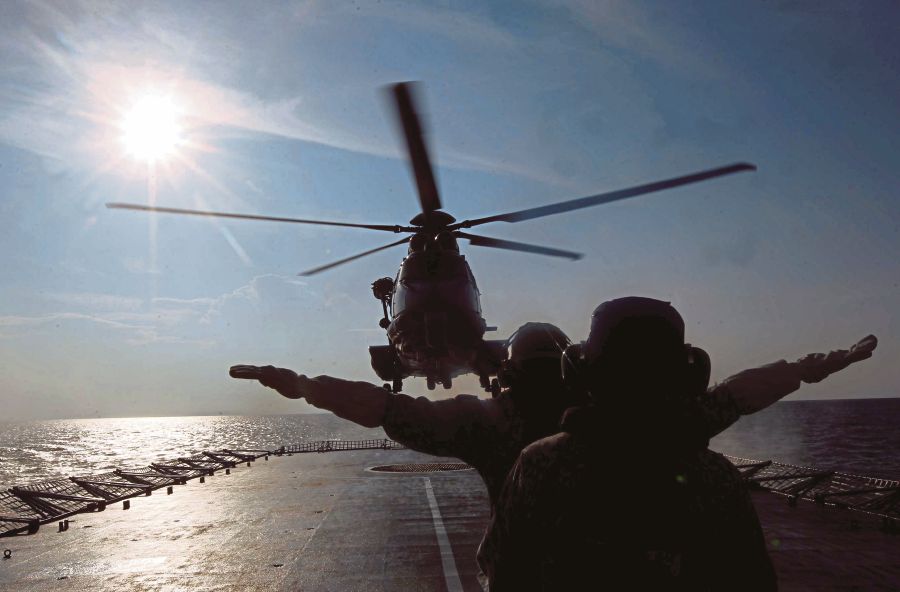
‘To empower the local defence industries, we have implemented five transfer-of-technology programmes, commercialised several defence products, and registered four defence industry products as intellectual properties.
‘Additionally, we have empowered research and innovation in science and defence technology through three collaborative agreements with the Government Research Institute.’
The Armed Forces Religious Corps will oversee the newly established “Rahmatan Lil ‘Ala-min” (Mercy to All Creations) secretariat to boost faith.
In view of the volatile security situation in Sabah, Malaysia has undertaken a trilateral maritime and air patrol with its neighbours.
Also given priority is cybersecurity with the implementation of the National Cyber Security Policy and Cyber Electromagnetic Activity (CEMA).
‘We believe in resolving territorial disputes via defence diplomacy via bi- and multi-lateral cooperation, such as the Asean Defence Ministers’ Meeting (ADMM) and ADMM Plus.
‘This is further to the bilateral exercises like ‘Eks Tiger Strike’ with the United States and ‘Eks Semangat Bersatu’ with Singapore.
‘There are also the multilateral exercises like ‘Eks Bersama Lima’ involving Malaysia, Singapore, Britain, Australia and New Zealand under the Five-Power Defence Arrangement, and the ‘Eks Pacific Partnership’ with the US and other Pacific nations.’
As for welfare,RM50 million had been allocated for the upkeep of 2,062 Armed Forces family homes.
‘Other benefits include RM500,500 special assistance to 138 veteran associations; a one-off RM500 incentive for each of the 68,804 Pingat Jasa Malaysia recipients, amounting to RM34,402 million, and the one-off RM250 Bantuan Harapan Negara to each of the 146,316 veterans, amounting to RM73,517 million.
‘This year’s Warrior’s Fund collected RM10 million, surpassing its initial target of RM6 million.
‘We also managed to secure jobs for 548 veterans through collaboration between the Armed Forces Ex-Servicemen Affairs Corporation (Perhebat) and government-linked companies, private entities and industries.’
NEW ACQUISITIONS AND CAMPS
Mohamad said his ministry was considering allocating RM540 million to complement the fleet of 257 DefTech-FNSS AV8 Gempita 8x8 armoured fighting vehicles and RM350 million for littoral combat ships.
In bolstering security in Sabah and Sarawak, he said the army had formed an Eastern Field Command headquartered at the Muara Tuang Camp in Kuching, Sarawak.
‘Under this command are two infantry divisions - one in Sabah and one in Sarawak.
‘This is owing to Malaysia’s strategic maritime location in Southeast Asia, surrounded by sea lanes of communication (in the South China Sea).’
The 1st Infantry Division oversees security in Sarawak, and is based at Penrissen Camp in Kuching.
The division is responsible for the 3rd Brigade, based also at Penrissen Camp, to oversee west Sarawak and the 9th Brigade at Rascom Camp in Sibu to oversee east Sarawak.
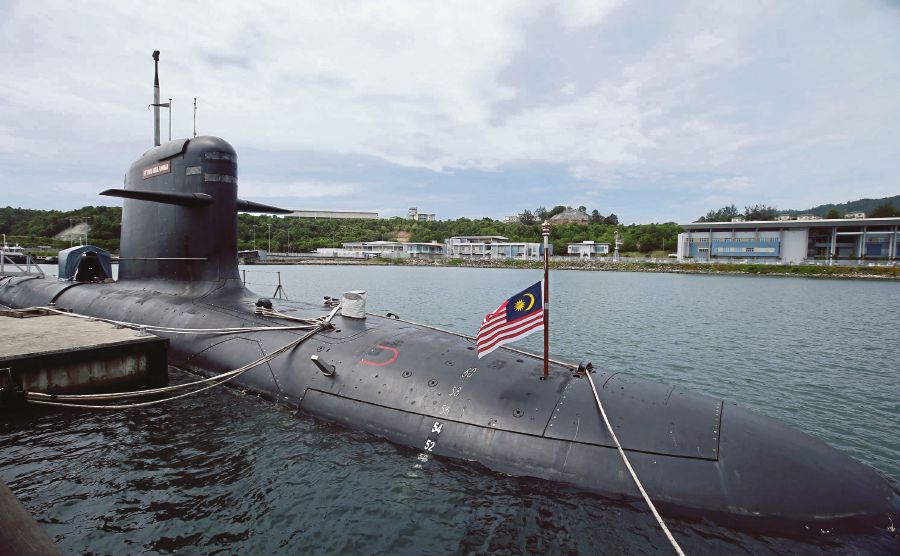
Under the 12th Malaysia Plan (2021-2025), a new camp will be built in Bakun to house the 31st Brigade now located in Sibu, to oversee the Sarawak-Indonesia border.
The 5th Infantry Division will be responsible for Sabah, and is based at the Lok Kawi Camp in Kota Kinabalu.
Under this division are the 5th Brigade at Paradise Camp in Kota Belud to oversee west Sabah and the 13th Brigade at Cenderawasih Camp in Lahad Datu to oversee east Sabah.
A new 32nd Brigade will be built in Kalabakan, Tawau, to oversee the Sabah-Indonesian border.
‘The army will undertake ‘Operasi Teras’ on its own, ‘Operasi Gabungan’ with Indonesia and ‘Operasi Bersama’ with the RMAF and RMN.
‘Additionally, there are the annual General Border Committee forums like Malindo (Malaysia-Indonesia) to address joint security, amicably settle disputes and enhance defence diplomacy.’
Mohamad has revealed plans to construct a new RMN base in Bintulu, Sara-wak, as the fourth Naval Regional Headquarters, or Mawilla 4.
‘This will augur well for safeguarding Malaysia’s territorial claims in the South China Sea, namely the North Luconia Shoal (also known as Beting Raja Jarum) and South Luconia Shoal (Beting Patinggi Ali).
‘At the same time, the new base will provide a security assurance to the local maritime community and uplift their socio-economy,’ he said.
ENORMOUS OPERATING COSTS
Mohamad revealed the enormous costs involved in maintaining and operating aircraft, vessels, vehicles, armaments, defence equipment and systems.
‘The situation is made worse by non-value added and suspicious acquisitions, which have placed a huge financial burden on the country’s economy.’
For instance, the RMN spends about RM100 million a year to maintain one of its two Scorpene submarines, inclusive of its operational and logistic support services and dock in Teluk Sepanggar, Kota Kinabalu in Sabah.
The RMAF’s fleet of Sikorsky S-61A-4 Nuri has been grounded, following a serious crash at Gubir Camp, Kedah, on Aug 2.
DUBIOUS DEALS
The ministry was plagued by the non-delivery of RM300 million worth of six MD530G lightweight combat helicopters from American aerospace giant McDonnell Douglas, with 35 per cent of the contract value of RM112.65 million already paid.
While the two squadrons of 18 MiG-29N Fulcrums have been grounded, only four of the 18 Su-30MKM Sukhoi Flankers were serviceable.
The irregularities also involved 16 cases of 1,183ha land swap deals valued at RM500 million, involving projects worth RM4.88 billion, since 1997.
Then, there was the mismanagement of the Armed Forces Superannuation Fund (LTAT), which announced a shocking annual dividend of two per cent, the lowest ever.
In 1998, RM4.9 billion was reportedly allocated to a company to supply six offshore patrol vessels for the RMN by 2006.
Delays, shoddy workmanship and cost over-runs are believed to have pushed the final price tag to RM6.75 billion, with RM4.26 billion already paid in advance although work done amounted to RM2.87 billion.
In October 2013, a local shipyard is learnt to have been contracted to supply six littoral combat ships (LCS), with RM6 billion already paid.
With delayed delivery until 2023, the ministry will incur an additional RM1.4 billion.


